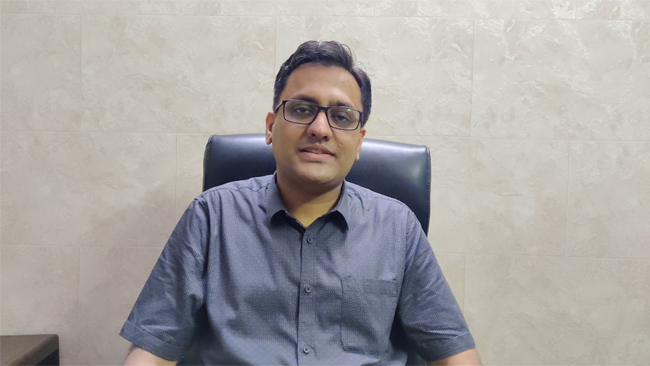
Jaipur, May, 2024.
Rare diseases
in India have gained increased attention in recent years, shedding light on the
challenges faced by patients and caregivers. India accounts for one-third of
the global rare disease incidence, with over 450 identified diseases. Though
our country lacks a standard definition for rare diseases, a rough estimate
suggests that about 8 crore-10 crore Indians suffer from
one rare disease or another; over 75% are children.
Spinal Muscular Atrophy (SMA) is one such
rare disorder that impacts the motor neurons in the spinal cord. It is a
genetic disorder and is one of the leading causes of infant mortality
worldwide. The consequence of the disease is gradual muscle weakness and
progressive loss of movement. SMA is a progressive condition that poses
significant challenges, be it physical, emotional, social, or financial.
Without timely diagnosis and intervention, most patients are unable to survive
beyond their second birthday. In cases where they do survive, their quality of
life is heavily impacted.
The severity of spinal
muscular atrophy (SMA) can vary depending on the specific type, with Type I
generally considered the most dangerous and severe form of the condition. Common symptoms include respiratory
issues, such as weakened respiratory muscles and breathing difficulties.
Swallowing difficulties may also arise, complicating feeding. Scoliosis,
particularly prevalent in Type 1 SMA, can cause breathing challenges due to
spinal curvature, limiting lung expansion. Reduced mobility may result in joint
stiffness or displacement, notably affecting the hips. While sensory and
cognitive symptoms can occur, cognitive function generally remains intact in
most SMA cases.
Patients suffering from rare diseases such as
SMA have either no access to treatment or are left with very limited options
for cure. With thousands affected in India, raising awareness, providing
support, and implementing effective strategies for early identification and
intervention are crucial. Along with the various
challenges faced by the patients, the family and the caregivers also experience
several struggles and hardships which include emotional, physical, and
financial strains and lifestyle adjustments.
Collaborative care has emerged as a cornerstone in the management of SMA,
offering a holistic approach to addressing the complex needs of patients and
their families.
Dr. Ashok
Gupta, Director Institute of Rare Diseases, Mahatma Gandhi University of
Medical science and Technology spoke about the importance of a collaborative
approach for the management of SMA, and said that “SMA
has a devastating effect on infants and their caregivers. SMA, especially Type
1 has a physical and emotional impact on patients and their families.
Respiratory struggles and difficulties with muscle strength require immediate
medical attention. The management of SMA also requires a multidisciplinary
approach, which includes timely physiotherapy intervention, nutritional
support, and respiratory management. Comprehensive and collaborative care
effort among doctors, therapists and support groups are imperative to enhance
the quality of life of the patients.”
Dr.
Priyanshu Mathur, State Nodal Officer for Rare Diseases, Associate Professor,
Pediatric Medicine, SMS Medical College, Jaipur spoke about the
importance of a comprehensive approach towards the management of rare diseases.
He added that, “Nutritional support is integral to the management of SMA,
serving both as a means to optimize growth and development and as a strategy to
mitigate disease progression. Children with SMA face challenges related to
feeding difficulties, poor weight gain, and compromised nutritional status due
to muscle weakness and swallowing difficulties. Our approach involves
individualized nutritional assessment and intervention, including specialized
feeding techniques, and oral supplements. Regular discussions with pediatric
gastroenterologists are essential in addressing feeding issues and ensuring
adequate nutrition intake to support optimal growth and function in children
with SMA."
The aim of
multidisciplinary and comprehensive care for SMA patients, and as an extension
to patients dealing with other rare diseases is to prolong the life of patients
but also to enrich it. The combination of physical therapy, nutrition, and
emotional support does not just treat symptoms; it provides the patients with
dignity and care and works to significantly improve the quality of their
everyday lives.